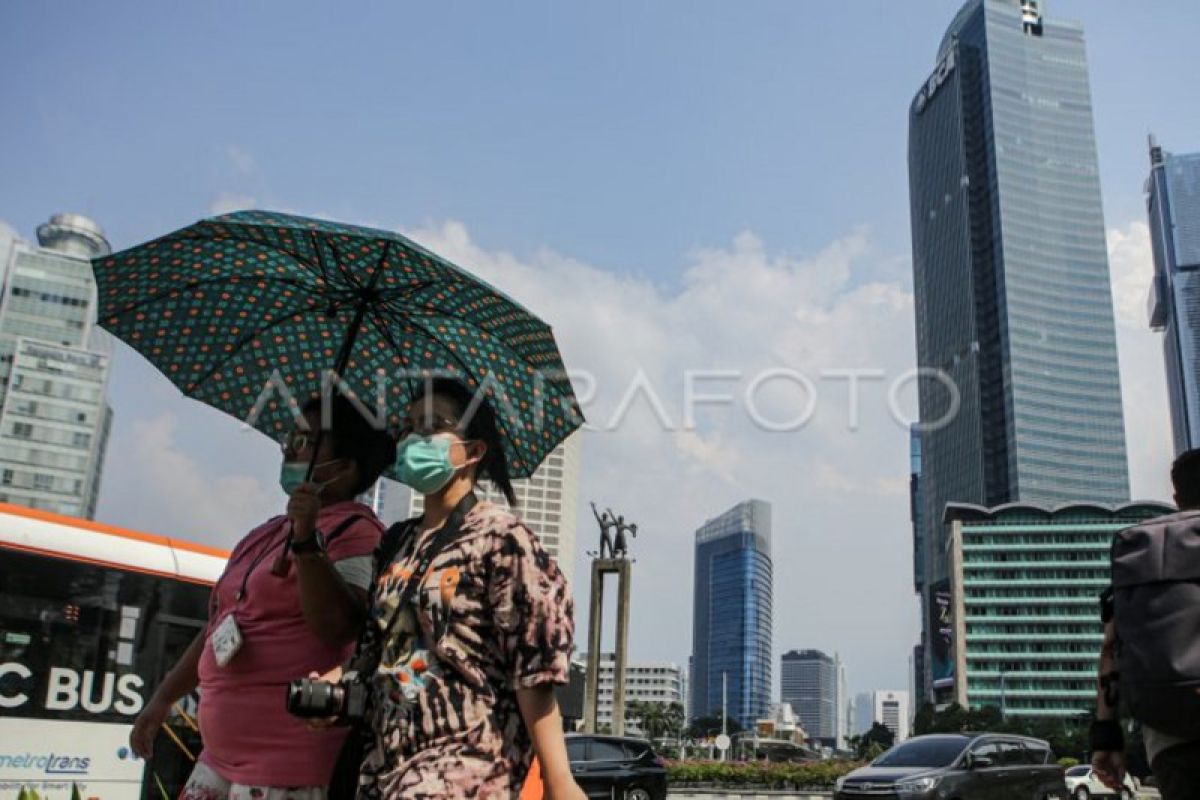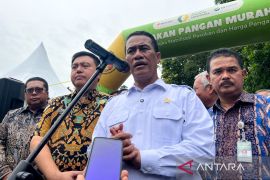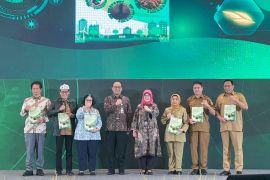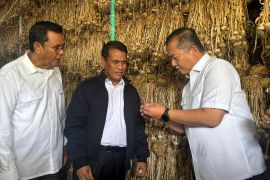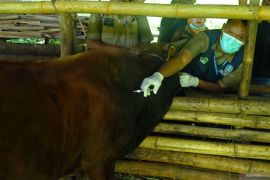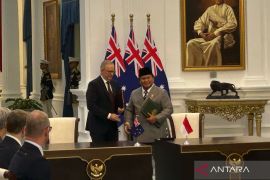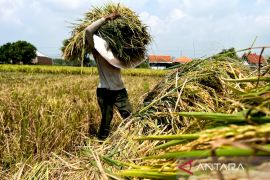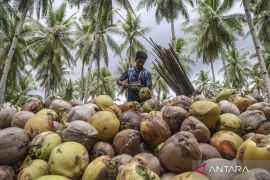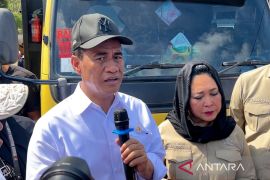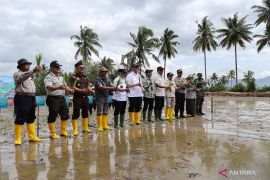This is because one of the impacts of rising temperatures that farmers are experiencing directly is the lack of water supply and the threat of drought.
Adequate water supply and support from good infrastructure determine agriculture production. "The availability of water is very important for agriculture results and ensuring our food supply security. Thus, there should be adequate quality and quantity of water," he said.
The agricultural sector absorbs around 70 percent of all freshwater, making it the cause as well as the victim of water scarcity, he highlighted.
If not handled well, this level of water consumption will destroy the ecosystem and deplete the amount of water available for other uses.
Several studies have shown that water demand in agricultural sectors that fail to adapt to climate change will increase by up to 40 percent.
Moreover, within the next few decades, water scarcity may affect two-thirds of the global population, and that will likely worsen the world's ecosystem.
As a consequence of climate change, there will be increased rainfall in the temperate zones, rainfall distribution variability, higher extreme incident frequency, and higher temperatures.
While Indonesia has extraordinary potential when it comes to renewable water resources, the supply and demand for water in the country are often imbalanced, Amir said.
Thus, water use management and innovative agriculture are key for handling the challenge of water scarcity.
Implementing regulations that maintain and preserve water resources could help achieve this goal. Effective irrigation methods could also be implemented to cut waste and increase harvests.
"There are many agriculture system best practices from regions in Indonesia that can be adapted in other regions," he said.
These include irrigation management using an environmental service payment scheme and the use of seeds that are more resilient to drought, he informed.
Related news: BMKG points to decrease in hot temperatures in Indonesia
Related news: Hot temperatures in Indonesia caused by atmospheric dynamics: BMKG
Related news: Indonesia discusses regional rice reserve strengthening in APTERR
Translator: Agatha O V, Fadhli Ruhman
Editor: Sri Haryati
Copyright © ANTARA 2023
